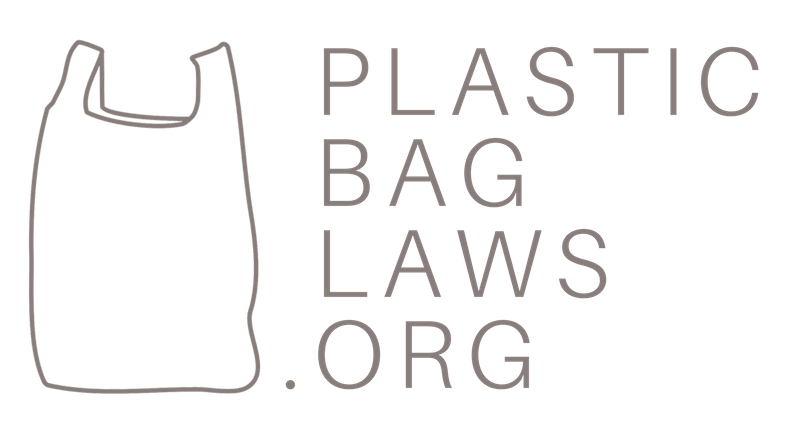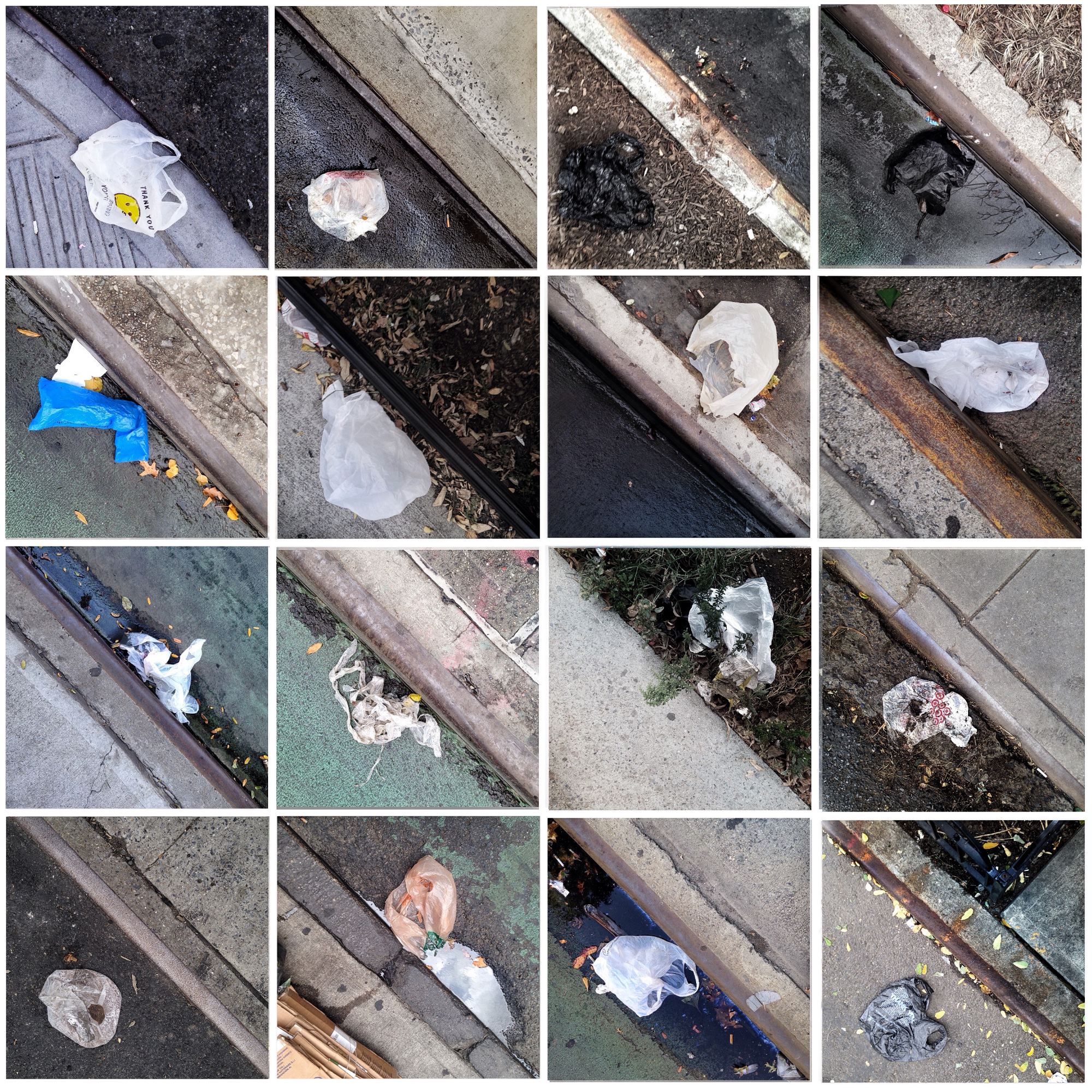Why Carryout Bag Fees Are More Effective Than Plastic Bag Bans [from Huffington Post Blog]
This article by, Jennie Romer, Esq., was cross-posted from the Huffington Post Blog.
As New York City moves forward with implementation of its carryout bag fee law, many people are asking why a fee is being pursued instead of a ban. Plastic bag “bans” sound like an ultimate sweeping policy choice, in part because “bag ban” is a term that has entered the American lexicon as shorthand for bag laws generally. However, the fee component is the policy element that’s by far the most effective way to change consumer behavior and reduce carryout bag consumption.
A “straight” plastic bag ban in the U.S. generally means that thin plastic bags are banned and paper and reusable bags are still available for free; this style of ordinance is sometimes called a “first generation” plastic bag ban. Straight bans often result in consumers taking whichever alternatives are still available for free, meaning that consumption of free paper and thicker plastic bags that qualify as a “reusable bag” (2.25 mils thick under most laws) often increases to some extent as consumption of thin single-use plastic bag use decreases.
Straight plastic bag bans implemented in Chicago and Hawaii in recent years resulted in many stores, including Walmart, simply upping the thickness of their plastic bags to 2.25 mils to cross the threshold that separates “single-use” plastic from “reusable” plastic bags under many bag laws. In response to seeing that a straight plastic bag ban did not work as intended, Chicago recently scrapped its plastic ban in favor of a 7-cent fee on all carryout bags.
Underlying all of this is that the plastics industry, and to a lesser extent the grocers industry, have a history of threatening to sue any jurisdiction that moves forward with straight plastic bag bans. Plastic bag manufacturers have an obvious interest in protecting an unregulated marketplace for their product and plastics industry trade groups have been lobbying against bag bans and fees practically since the idea was first articulated. Plastic bag manufacturers have also found that litigation - suing cities to stop adoption or implementation of bans and fees - to be incredibly effective in slowing down the speed at which bag laws are adopted. The plastics industry’s best argument against bans has been an environmental one, that if plastic bags are banned then people will just use paper (or whatever is free) and therefore the outcome of bans could be worse for the environment.
Grocers’ industry groups have a different motivation for not wanting straight bans, the main reason being that paper bags cost significantly more than plastic: thin plastic bags cost 1-3 cents and paper bags with handles and recycled content cost around 8-10 cents. In practice, laws that ban plastic and don’t mandate a charge on paper bags often result in stores providing paper for free, since stores want to make sure consumers purchase as much as possible and most grocery stores don’t want run the risk of offending customers by charging for paper bags when a charge is not mandated. The cost of supplying for free the more expensive paper bags cuts into the grocers’ profit. As a result, grocery store associations often oppose straight plastic bag bans and sometimes file lawsuits (including one in New York state) using many of the same arguments that plastics industry groups do.
These plastics industry and grocer lawsuits concentrate on weighting the merits of plastic versus paper and various types of reusable bags in exhausting detail, down to things like comparing the greenhouse gas emissions for paper bags versus plastic because paper takes up more space in trucks and additional trucks idling in front of stores due to increased paper bag consumption could possibly contribute more overall diesel emissions. Many cities have spent years in court battling these lawsuits regarding straight bans, with mixed results.
In response to the lack of real change in consumer behavior resulting from straight bans as well as threatened lawsuits from industry groups with innocuous-sounding names like Coalition to Support Plastic Bag Recycling and Save the Plastic Bag Coalition, cities that had pioneered straight plastic bag ban - namely San Francisco - began to add a minimum charge for paper bags and reusable bags. These new ordinances kept the ban on thin plastic in place and added a 10-cent charge to all other carryout bags including paper and reusable bags of any kind. These new ban/fee hybrids were deemed “second generation bans” and they were much more effective: overall single-use bag consumption decreased. When customers are suddenly presented with the question “Would you like to purchase a bag for that?” bag consumption drops dramatically. For example, in San Jose, California reusable bag use increased greatly following the implementation of the ordinance, from almost 4 percent of bags observed to approximately 62 percent of bags observed.
Washington DC's 5-cent charge on paper and plastic carryout bags that went into effect in 2010, and has led to a 60% drop in overall single-use bags and a corresponding drop in bag litter in the river there. Eighty percent of Washington DC residents surveyed were positive or neutral about the bag fee there. One benefit to the fee on all bags versus a ban/fee hybrid is that many people use thin plastic bags as liners for small trash cans and to pick up after dogs and with a fee those bags are still available for a small fee so that people don’t feel the need to spend more money on specialized alternatives, but the fee makes consumers more mindful about whether they need a bag for each purchase.
Where the money from bag fees goes presents its own set of challenges. When cities started mandating fees on bags outside of Washington DC, plastics industry groups found another reason to sue. Cities and towns generally don’t have the power to levy taxes unless specifically granted permission to do so by the state. Washington DC isn’t part of a state so was able to levy a 5-cent tax on bags and have a portion of the money generated go to a bag education and river clean-up fund. However, when other cities started discussing imposing paper bag fees and sending that money back to local governments for a similar clean-up or education purpose, they were threatened with lawsuits again, this time for unconstitutional taxation.
To avoid this claim of unconstitutionality, municipalities — including the County of Los Angeles — mandated that retailers must charge 10 cents for paper bags and that the entire amount must stay with the retailer. Los Angeles County was sued and the California Court of Appeal found that, because no money went to the government, the mandatory charge could not be considered a tax. LA County’s bag law (a ban on thin plastic and 10 cent charge for paper) was upheld. Many other cities across the U.S. then followed LA County’s model and required that the entire amount of the charge stay with stores. Plastics industry groups often use the fact that bag ban money must legally remain with the retailer to malign the laws as “grocers-getting-rich” but the truth is that there isn’t much of a choice for local lawmakers as far as where the bag fee money can go and, perhaps more importantly, a bag fee of 5-10 cents is roughly equal to the cost of providing a carryout bag.
The take-home lesson here is that either a bag fee on all bags or a ban/fee hybrid that covers all types of bags are the most effective methods to reduce overall bag consumption as well as avoid getting sued in the process. Also, many NYC residents expressed concerns that they re-use plastic bags as garbage liners or for picking up after their dogs, so a fee on all bags was determined to be the best policy option for NYC.
The City Council passed NYC’s #BYOBag law, a minimum 5-cent fee on all carryout bags, in May 2016. NYC’s law is scheduled to be implemented on February 15, 2017 unless the NY state legislature blocks the fee with a preemption bill. To learn more about the preemption bill visit NYC Council Member Brad Lander’s website, for grassroots activism updates visit the BagItNYC Facebook page, and if you’d like to show your support for NYC’s law, sign this petition against preemption.



